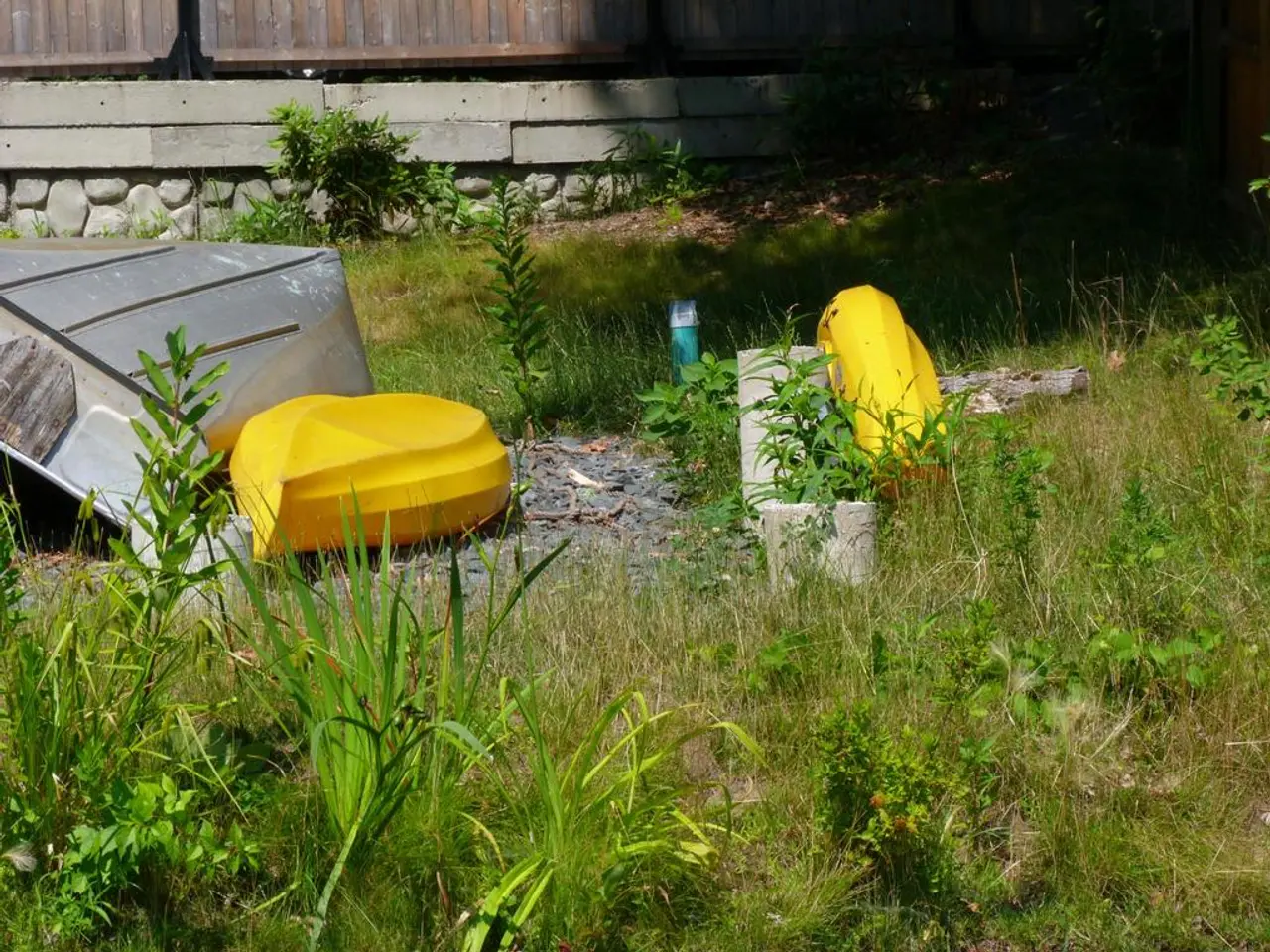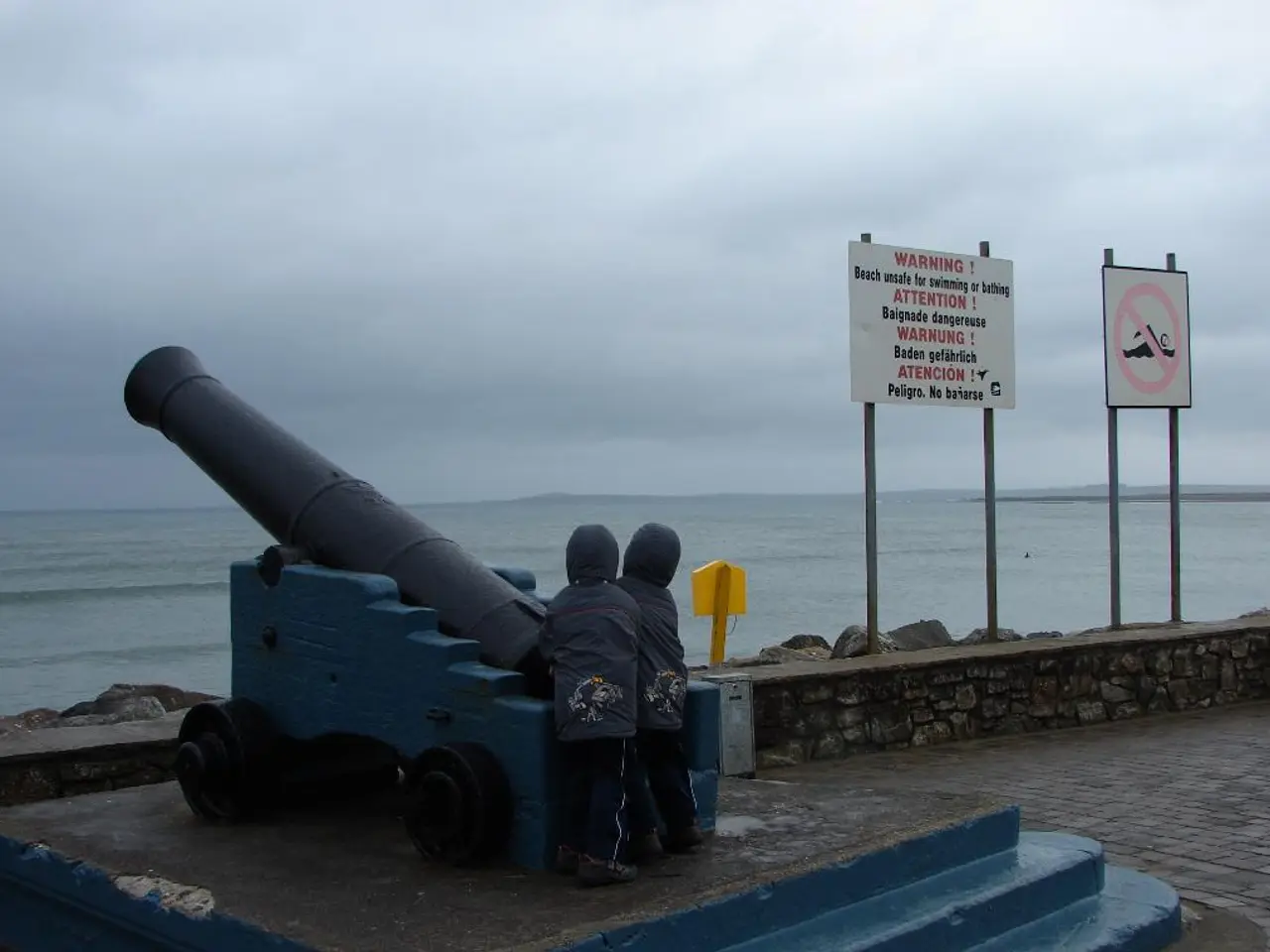Our Tribe, the United Houma Nation: Facing Environmental, Economic, and Cultural Threats
Exiled Saktce' Ho'ma Faces Challenges in New Homeland
Hailing from the Louisiana Gulf Coast, the United Houma Nation - a vibrant tribal community with around 19,000 tribal citizens - is grappling with numerous environmental, economic, and societal challenges that jeopardize their survival and cultural identity.
Living on the Edge: Environmental Perils and Climate Threats
The erosion of coastal lands forms a significant hurdle for the United Houma Nation, as it imperils their traditional homelands and communities. Louisiana's coastline is rapidly vanishing due to the combined effects of rising sea levels, subsidence, and hurricane damage. To fortify the tribe's coastal resilience, initiatives are being implemented to shield these areas from environmental hazards in the near-, mid-, and long-term [3].
The tribe has been a victim of escalating natural disasters, such as Hurricane Ida in 2021, which wreaked catastrophic destruction on infrastructure, power systems, and homes. Additionally, the specter of consecutive calamities, like heatwaves following hurricanes, looms, compounding risks and making recovery and stabilization even more elusive [5].
An Uncertain Economic Future
The shrimping industry, a cornerstone of the United Houma Nation's economic lifeline, is on the brink of collapse in Louisiana. As this key economic activity falters, it endangers the livelihoods of those whose lives revolve around traditional fishing and maritime practices, weakens the tribal economy, and exacerbates displacement and social upheaval [1].
A Community on the Move
Environmental devastation, particularly from coastal erosion and hurricanes, combined with economic decline in area industries, is fueling the ongoing displacement of tribal members from their ancestral lands. This relocation undermines the cultural bond and access to traditional resources, creating a fractured and desolate picture of a once-thriving community.
The authors' uncle, Peter Verdin, foraging for elderberries in Dulac, Louisiana on the bayou side. Elderberry blossoms are employed for medicinal purposes by the Houma. Photo by Rochelle Morgan-Verdin.
Rebuilding Cultural Identity: The Journey Back Home
Against this backdrop of dispossession and struggle, the tribe has responded resiliently. A new generation of Houma people is devotedly working to reclaim their traditional language, Uma'. This initiative spearheads a wave of broader cultural rejuvenation aimed at ensuring future generations will never experience the pain suffered watching their community disintegrate. The reconstruction of Uma' signifies an essential step toward reconnecting with the self, ancestors, and the broader Houma community, regardless of where they reside [2].
The authors' father, Ricky James Verdin, toiling on the Young Danny with his uncles, harvesting oysters and ferrying them across the Mississippi River for canning. Photo by Rick James Verdin.
As we confront the challenges of this evolving landscape, young Houma people are reclaiming and revitalizing our ancestral language, customs, and traditions. By rediscovering Uma', the next generation will forge a renewed connection with themselves, their ancestors, and the broader Houma community. In doing so, they stand a chance of reclaiming their place in this world - preserving their history, identity, and ensuring a brighter future for the Saktce' Ho'ma (Crawfish People). This first step leads us back home, offering the promise of a renewal and restoration of our shared identity.
Rochelle Morgan-Verdin* and Jecee Morgan-Verdin are proud, registered members of the United Houma Nation. Rochelle has completed her master's degree in International Law and Human Rights and a bachelor's in Latin American and Caribbean Studies. Jecee holds a bachelor's degree in Biological Sciences and a master’s degree in Preclinical Sciences.
Top photo: Homes in Terrebonne Parish destroyed by Hurricane Ida in 2021. Photo by Jecee Morgan-Verdin.
- The United Houma Nation, facing environmental threats such as coastal erosion and climate change, is also navigating political challenges in their efforts to preserve their environment and culture, as these issues often require government intervention and support in the form of funding for resilience initiatives and regulations to protect their lands and industries.
- The importance of environmental-science, particularly in understanding and mitigating climate change, becomes increasingly apparent as tribal communities like the United Houma Nation grapple with the impacts of changing weather patterns and natural disasters, highlighting the need for ongoing research and policy decisions that prioritize environmental protection and preservation for all communities.







